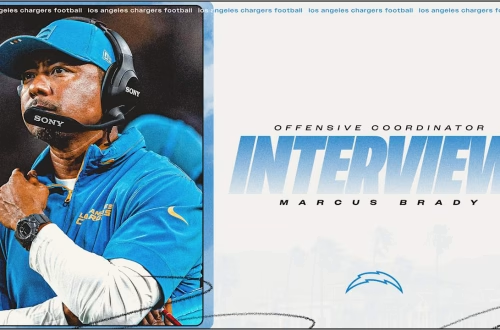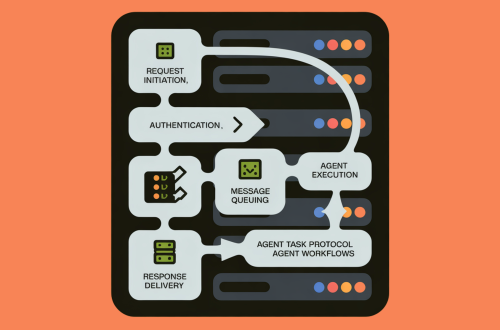Summary:
The UK Online Safety Act represents one of the most comprehensive legislative attempts to regulate digital content, aiming to safeguard users from harmful material while wrestling with the complexities of freedom of expression. Introduced in 2023, the Act imposes strict obligations on tech companies to remove illegal and “legal but harmful” content, raising concerns about censorship and digital rights. This legislation matters because it directly impacts how UK citizens engage with online platforms, influencing everything from political discourse to personal expression. Critics argue it threatens free speech, while proponents claim it is necessary to combat misinformation, cyberbullying, and extremist content.
What This Means for You:
- Increased Content Moderation: Social media platforms and search engines will enforce stricter moderation policies, potentially removing posts flagged as harmful. You may notice changes in what content is accessible or allowed online.
- Legal Risks for Users & Platforms: Individuals posting controversial opinions could face removal or sanctions, while platforms failing compliance may incur hefty fines. Be mindful of online interactions and familiarise yourself with platform policies.
- Algorithms & Visibility Changes: Platforms may tweak algorithms to limit exposure to borderline content, affecting how your messages reach audiences. Adjust privacy settings and verify sources before sharing sensitive material.
- Future Outlook or Warning: The UK government has positioned this Act as a global model, meaning similar laws may emerge elsewhere. However, ambiguity around “harmful content” definitions could lead to arbitrary enforcement, requiring judicial oversight to safeguard free expression.
UK Online Safety Act & Freedom of Expression: Balancing Regulation & Digital Rights
Introduction to the UK Online Safety Act
The UK Online Safety Act (OSA), enacted in October 2023, is a landmark piece of legislation designed to regulate online platforms, ensuring they protect users from illegal and harmful content. The law applies to search engines, social media sites, and other user-generated content platforms, compelling them to enforce tighter moderation policies or face fines of up to 10% of their global revenue. While the government frames it as a measure to combat abuse, terrorism, and child exploitation, activists warn of its potential to stifle free speech under vague definitions of what constitutes harm.
Political & Historical Context
This legislation follows years of debate around internet regulation in the UK, influenced by incidents like the 2019 Christchurch terrorist attack (which was livestreamed) and growing political pressure to hold Big Tech accountable. The OSA builds upon earlier proposals from the 2019 Online Harms White Paper but expands enforcement power to Ofcom, the UK’s communications regulator. Historically, Britain has taken a stricter stance on speech restrictions than the U.S., where the First Amendment offers broader protections. The OSA reflects this tradition but introduces unprecedented government oversight over digital discourse.
Key Provisions & Controversies
The Act mandates that platforms:
- Remove illegal content (e.g., terrorism, hate speech) promptly.
- Address “legal but harmful” content affecting adults, including cyberbullying and misinformation.
- Implement age verification to shield minors from harmful material.
Critics argue that the subjective nature of “legal but harmful” content enables censorship, while supporters insist it prevents psychological and societal harm. Ofcom’s role in defining these categories remains a focal point of legal challenges.
Human Rights Implications
Freedom of expression under Article 10 of the European Convention on Human Rights (ECHR) is a qualified right, meaning restrictions must be necessary and proportionate. The OSA’s broad mandates risk conflicting with this principle, potentially violating protections upheld by UK courts. Legal scholars highlight that over-removal of content could create a “chilling effect,” discouraging legitimate dissent. Meanwhile, privacy advocates warn that age verification requirements may compromise anonymity and data security.
Comparative Perspectives
Unlike the EU’s Digital Services Act (DSA), which focuses on transparency in content moderation, the OSA adopts a more interventionist approach. The US, by contrast, maintains strong free speech protections under Section 230, though some states are exploring moderation laws. The UK’s approach could set a precedent for other democracies weighing regulation against digital liberties.
The Path Forward
Ofcom’s forthcoming codes of practice will shape how the OSA is implemented. Advocacy groups are mounting legal challenges, while tech firms invest in AI moderation tools—raising concerns about accuracy and bias. The tension between safety and civil liberties will likely escalate as enforcement begins.
People Also Ask About:
- Does the UK Online Safety Act ban free speech? No, but it enables restrictions on content deemed harmful. Courts will determine whether these limits align with human rights laws.
- How will the Online Safety Act affect social media users? Users may see increased content takedowns or shadow-banning of controversial posts. Platforms must balance enforcement against backlash.
- What counts as “legal but harmful” content under the Act? The definition remains fluid but includes material promoting self-harm, eating disorders, or false medical claims. Ofcom will refine guidelines over time.
- Can VPNs bypass Online Safety Act restrictions? Technically yes, but the Act primarily targets platforms, not individual users. Encrypted services may face pressure to comply with surveillance requests.
Expert Opinion:
The OSA signifies a pivotal shift toward state-sanctioned internet governance, blending well-intentioned safeguards with risks of overreach. Its success hinges on precise definitions and transparent enforcement to avoid suppressing legitimate discourse. As AI moderation expands, errors in content removal could disproportionately marginalise vulnerable voices. Long-term, the law may inspire comparable legislation worldwide, reshaping digital rights frameworks.
Extra Information:
- UK Government Factsheet on the Online Safety Act – Official breakdown of the Act’s scope and objectives.
- Liberty’s Analysis of the OSA – Human rights perspective on potential free speech infringements.
Related Key Terms:
- UK Online Safety Act and freedom of speech implications
- Legal but harmful content definition UK
- Ofcom regulations for online platforms 2023
- How does the Online Safety Act affect social media
- Online censorship laws in the United Kingdom
- Human rights challenges to Online Safety Act
- Age verification requirements under UK OSA
*Featured image provided by Dall-E 3





